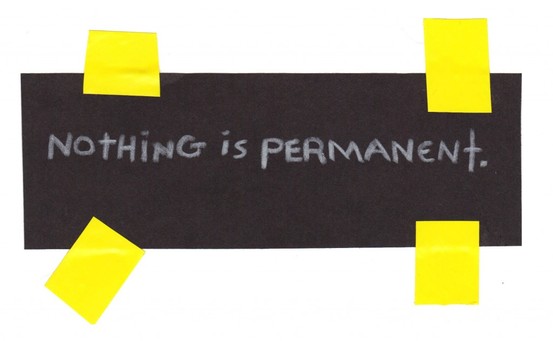|
Thanks for visiting - 2023 marks our 20th anniversary! This site is ad-free and supported by sales of our online courses. If you get value from what we write, click the link at the bottom of the page and read Day 1 of "Your inner narrative" to see if it's right for you...no email required. Here is this weeks installment of "Question and Answer Tuesdays!" Julie writes: "As I understand it, meditation teaches you to not get attached to things. Is that healthy? I don't want to end up as someone who is unattached and unfeeling towards my friends and family." NON-ATTACHMENT VS. DETACHMENT The question above highlights a common misconception. Most of us don't understand "non-attachment," and mistakenly think of it as Julie described - uncaring and unfeeling. They equate it with a cold, callous attitude, and an inability to love and appreciate other people and things. This better describes "detachment," however. Detachment is a defense mechanism that people employ to keep from feeling emotions. Non-attachment, on the other hand, means acknowledging and accepting what arises (feelings, thoughts, emotions, urges, etc.) without getting caught up in any of it. It means not indulging thoughts and emotions, because indulging only serves to perpetuate them. It means not following your mind down a path that culminates in conditioned behavior, and habitual actions and reactions. This is what we strive for in meditation. Equally as important, non-attachment means you don't try to make something temporary into something permanent. EVERYTHING WILL CHANGE Impermanence is a fundamental truth whether we choose to accept it or not: nothing lasts unchanging over time. If you "attach" or cling to something that is temporary, you will suffer when it changes. This applies to anything in your life - people, places, things, experiences, situations, relationships, et cetera. A full understanding and acceptance of the transient nature of reality will lead you to a deeper appreciation for everything. You can be in relationships, you can enjoy things and experiences, you can love and be loved - but, now you do it with the realization that nothing is permanent. As such, you cultivate the ability to be more present with the things that are meaningful to you. There is a story from the book "Thoughts Without A Thinker" that illustrates this understanding: "You see this goblet?" asks Achaan Chaah, the Thai meditation master. "For me this glass is already broken. I enjoy it; I drink out of it. It holds my water admirably, sometimes even reflecting the sun in beautiful patterns. If I should tap it, it has a lovely ring to it. But when I put this glass on the shelf and the wind knocks it over or my elbow brushes it off the table and it falls to the ground and shatters, I say, ‘Of course.’ When I understand that the glass is already broken, every moment with it is precious." Put simply, knowing that everything will change makes each moment you spend with it more precious. And, that is the opposite of unfeeling and uncaring. <>
Our minds constantly create stories about what we experience, and we spend most of our time caught up in those stories. This results in the stress and struggles of daily life. "Your inner narrative" (our 15-day online course) can help you break that pattern. Read Day 1 here (no email required). Comments are closed.
|
